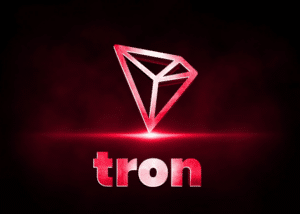The Court of Appeal of Montenegro has recently overturned the extradition order for Do Kwon, co-founder of the crypto company Terraform Labs.
The decision, made public on December 19, follows Kwon’s appeal against the initial verdict.
Crypto news: there will be no extradition for Do Kwon
The High Court of Podgorica initially sanctioned the extradition of Kwon to the United States or South Korea in November, citing the compliance of these nations with the legal criteria required for such a process.
Unsatisfied with this outcome, Kwon promptly filed an appeal, leading the appellate court to overturn the extradition order and remand the case for a new trial.
The recent ruling highlighted the procedural violations in the lower court’s extradition order, as emphasized in the translated note:
“The Court of Appeal panel has determined that this decision was affected by a significant violation of the provisions of criminal procedure under Article 386, paragraph 1, point 9 of the CPC, the violation of which is reasonably indicated by the appeal of the defendant’s defense lawyers, as the decision lacks reasons for decisive facts, and the reasons provided are not clear, which is the reason for its cancellation.”
In addition, the appellate court criticized the lower court for neglecting Kwon’s perspective on extradition to the United States.
In the uncertainty about Kwon’s destination, the fallen cryptocurrency magnate has expressed his preference for extradition to South Korea. However, reportedly, the Minister of Justice of Montenegro leans towards extradition to the United States.
These legal developments stem from Kwon’s arrest earlier this year in Montenegro for traveling with fake documents. This led to a subsequent four-month detention.
Legal actions by the USA and South Korea
At the same time, both the United States and South Korea have initiated legal actions against Kwon.
By attributing a presumed role in the collapse of the algorithmic stablecoin UST by Terra, which led the sector to suffer a substantial loss of over 40 billion dollars
Furthermore, the reproach of the appellate court to the lower court for not taking into account Do Kwon’s perspective on extradition to the United States emphasizes the importance of respecting the rights and preferences of the defendant in international legal matters.
This criticism raises questions about due process and consideration of the defendant’s position in extradition proceedings. Reflecting the complexities inherent in navigating the legal frameworks of multiple jurisdictions.
While the judicial process resumes in court, the issue of Do Kwon’s final destination remains uncertain.
The expressed preference for South Korea clashes with the inclination of the Minister of Justice of Montenegro regarding extradition to the United States. This geopolitical dilemma adds an additional level of complexity to an already complex legal case.
The scenario of Kwon’s initial arrest in Montenegro for traveling with fake documents and the subsequent detention for four months sets the stage for the legal battles that await him.
The charges brought by the United States and South Korea against Kwon for his alleged involvement in the collapse of the UST stablecoin of Terra. Problem that has caused a substantial loss in the industry, continue to loom over the proceedings.
The global ramifications of this case extend beyond the individual involved, giving rise to discussions on the international cooperation necessary to address legal issues concerning prominent figures in the cryptographic space.
Conclusions
In conclusion, the recent cancellation of the extradition order for Do Kwon, co-founder of Terraform Labs, by the Court of Appeal of Montenegro has revealed a complex legal landscape.
The meticulous examination of procedural violations and the recognition of the defendant’s point of view highlight the complexities associated with the management of international extradition cases. Particularly in the field of blockchain and cryptocurrencies.
While the legal process returns to the first instance court, the uncertainty about Do Kwon’s destination persists, adding a geopolitical dimension to the case.
Its implications could extend beyond this specific case, shaping the approach to future legal considerations within the cryptocurrency ecosystem. The resolution of this case will undoubtedly contribute to the ongoing discourse on the intersection between law, blockchain, and web3.






















